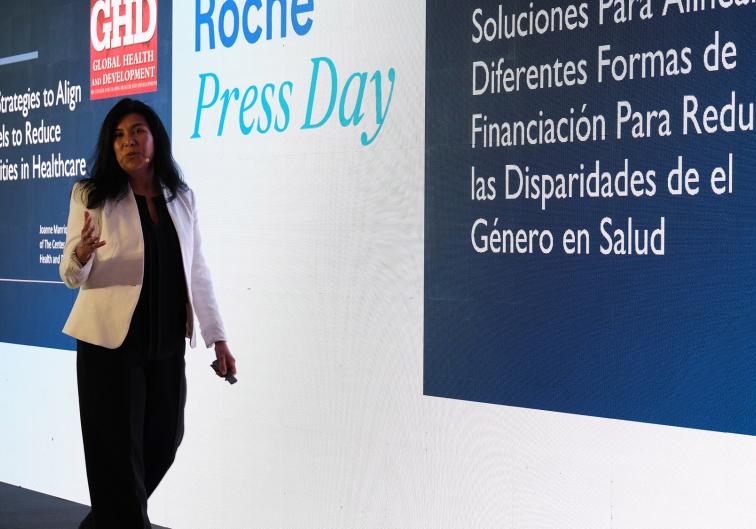News
|
The forum focused on promoting accountability and transparency in global health efforts.
Joined by global health leaders and champions, the event highlighted the important role that accountability and transparency play in battling maternal and child health deaths and fighting deadly disease such as Malaria and Tuberculosis. Corporations, civil society leaders and governments spoke about their roles in making their work in global health more transparent and accountable.
During the reception, His Excellency Jakaya Kikwete, President of the Republic of Tanzania; Her Royal Highness Princess Astrid of Belgium; provided remarks highlighting the importance of accountability and transparency in promoting partnerships to achieve important global health goals.
The speakers at the dinner also discussed the latest edition of GHDnews that provided a special focus on efforts to address tuberculosis in Afghanistan.
Global Health and Diplomacy, a center that convenes leaders in health and foreign affairs to discuss challenges and find solutions to global health matters, honoured the champions of global health and diplomacy in 2012, His Excellency Yayi Boni, President of Benin, His Excellency Jorge Sampaio, Former President of Portugal, Michel Sidibe, Executive Director of UNAIDS and Dr. Ariel Pablos-Méndez, assistant administrator for Global Health at USAID.
On September 27th Health and Foreign Affairs Ministers, Ambassadors, donor government representatives and global health leaders gathered to discuss public private partnerships that have improved global health and honour the 2012 champions of global health and diplomacy.
About Global Health and Diplomacy:
The Center for Global Health and Diplomacy (GHD) provides a rare intersection where high level political figures, health care workers and leaders in both the public and private sector can share and communicate their ideas. Global Health and Diplomacy wants to ensure that each of our global health stakeholders' vision becomes a reality. Global health issues are much too broad for any one doctor, health care worker or world leader to address alone. It is only through partnership that success can be achieved.
Global Health and Diplomacy is an international hub for health and diplomacy, GHD can tap into a diversity of global health stakeholders through their work with different governments and civil society leaders.
Global Health and Diplomacy reaches presidential offices in 55 countries through its online/ print publication and its international roundtable forums.
 On June 13, the Center for Global Health and Diplomacy hosted a roundtable on maternal and child health issues. Several health ministers, CEOs of civil society organizations and government representatives from donor governments including the US (Ms. Lois Quam, the Executive Director of the Global Health Initiative and Dr. Ariel Pablos-Mendez, the USAID Assistant Administrator for Global Health) and Canada were part of the roundtable forum. Multilateral organizations were also part of the discussion including the World Bank and WHO. During the roundtable discussion commitments were made to improve maternal and child health outcomes. Through events such as these the Center for Global Health and Diplomacy (CGHD) continues to bring together stakeholders in global health. CGHD is focused on having the corporate, civil society and government partners follow up on commitments that were announced at this meeting. CGHD will be hosting follow up meetings on commitments shared at this roundtable forum in mid September in New York. To receive additional information about this event, please email This email address is being protected from spambots. You need JavaScript enabled to view it.
On June 13, the Center for Global Health and Diplomacy hosted a roundtable on maternal and child health issues. Several health ministers, CEOs of civil society organizations and government representatives from donor governments including the US (Ms. Lois Quam, the Executive Director of the Global Health Initiative and Dr. Ariel Pablos-Mendez, the USAID Assistant Administrator for Global Health) and Canada were part of the roundtable forum. Multilateral organizations were also part of the discussion including the World Bank and WHO. During the roundtable discussion commitments were made to improve maternal and child health outcomes. Through events such as these the Center for Global Health and Diplomacy (CGHD) continues to bring together stakeholders in global health. CGHD is focused on having the corporate, civil society and government partners follow up on commitments that were announced at this meeting. CGHD will be hosting follow up meetings on commitments shared at this roundtable forum in mid September in New York. To receive additional information about this event, please email This email address is being protected from spambots. You need JavaScript enabled to view it.


















